‘I felt violated on a very extreme level’: Australian supermodel Robyn Lawley blasts AI, Victoria’s Secret
From Victoria’s Secret’s reinvention to the alarming use of AI in modelling, Robyn Lawley is calling out the fashion industry. Here, she explains why.
Stellar
Don't miss out on the headlines from Stellar. Followed categories will be added to My News.
She’s one of Australia’s OG supermodels – and one of the most public voices seeking change in the fashion industry.
Now Robyn Lawley is taking on the big business of AI, exposing its very real implications for the modelling profession.
As New York-based Lawley tells Stellar’s podcast Something To Talk About: “I’ve spent my whole career trying to break barriers … now, I’ve got to compete with bodies that don’t even exist”.
Stellar: What happens when you type the words “Robyn Lawley eating a banana” into an artificial intelligence (AI) photo library?
Robyn Lawley: You will see me eating a banana – or a version of me. She kind of looks like me but she doesn’t at the same time. She might have five fingers or she might have six fingers – AI might get the fingers wrong. Other than that, it’s pretty spot-on.
How does that make you feel? Violated on a very extreme level. It’s my name that you’ve searched and now AI has generated this image that looks like me, so think of what people could search. I think it’s only going to get worse.
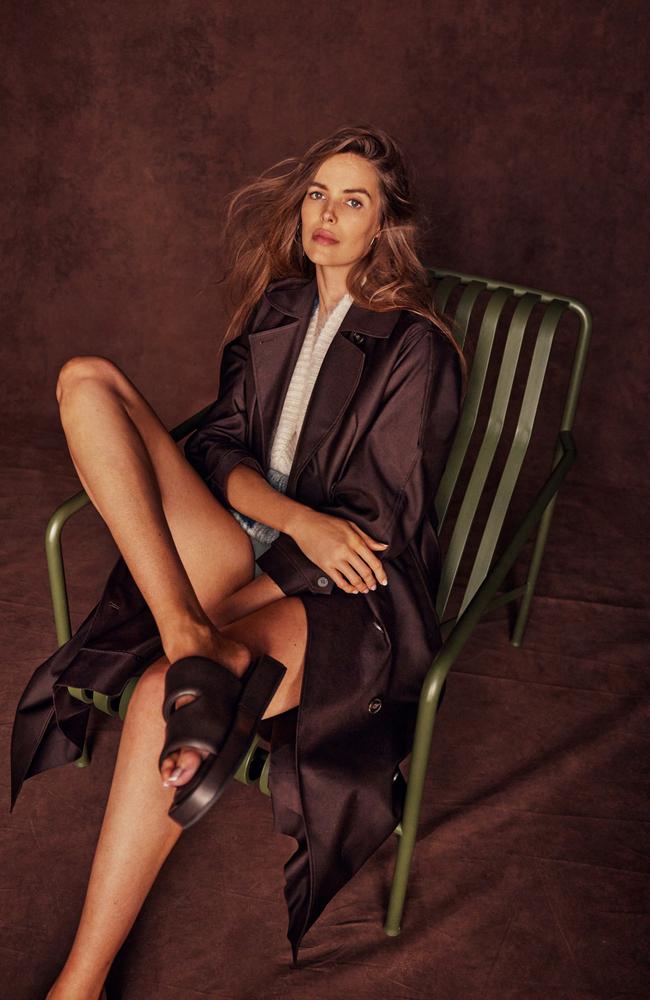
Along with your manager (Chelsea Bonner, founder and CEO of Australian modelling agency Bella Management, and journalist Tracey Spicer), you started a petition at the end of last year, urging government bodies to take action on so-called “deep fakes”. What happens if we don’t take action and it doesn’t stop? The fact you can search “Robyn Lawley eating a banana” is really disturbing. There’s no labelling of AI, so you don’t even know it’s AI. You think it’s a human but it’s not. She has perfect skin, so you’re going to judge your skin next to her perfect skin. You’re going to judge your body compared to her perfect body. But “she” isn’t even real, she doesn’t even exist. I’ve spent my whole career trying to break those barriers and [represent] real, diverse bodies. Now, I’ve got to compete with bodies that don’t even exist. We’ve been demanding that the government get involved. They’re allowing our images to be taken.
Listen to the full interview with Robyn Lawley on the latest episode of Something To Talk About:
There are a lot of conversations about the broader implications of AI. Could you talk us through how it could impact the modelling industry? [Last year] Levi’s released images of computer-generated models, and they had different ethnicities. They thought they were doing the right thing going, “We use different models of different sizes with different ethnicities.” Except it was like a digital blackface – they didn’t use the models that were required. Models of different ethnicities are trying to get jobs and yet here we have a computer-generated version of them. That’s when I first heard about AI; I was like, “This is going to take over our industry.” [Levi’s] actually got a lot of backlash for it, and obviously so, because they should have used an actual model. It’s now really common to use AI in photo shoots. People haven’t thought of the implications.
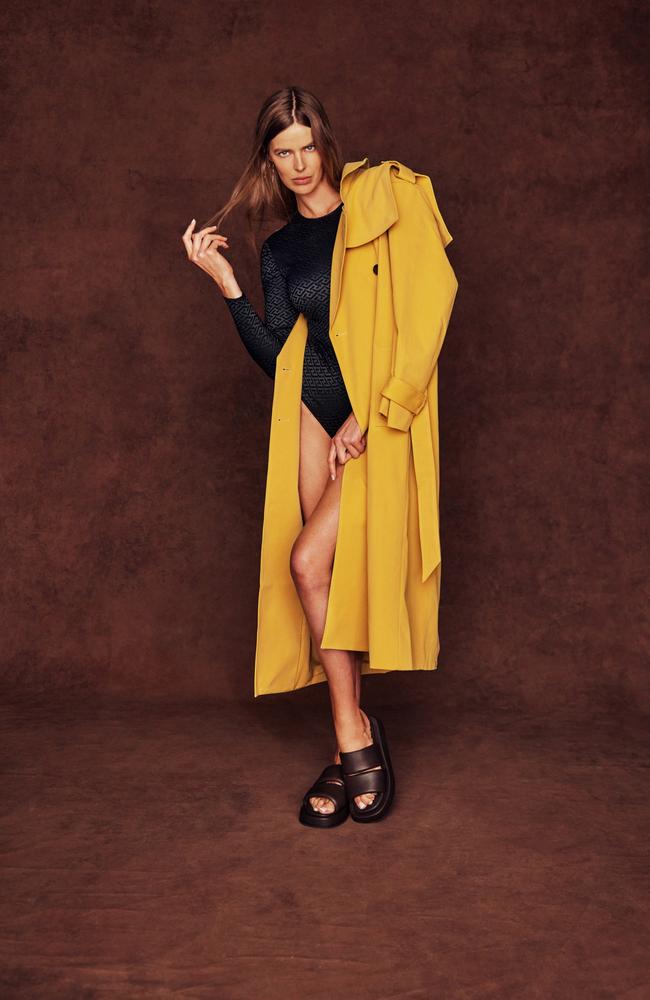
I have a vested interest in this because AI is also impacting the media industry. And once those roles are gone, we won’t be able to get them back. That’s my fear – and it’s happening much faster than the industry is aware of. [Some brands] have been doing model scans: they’ll get models in shoots and do full 360 scans of [their body]; they take front, back, side [photos], without your head … they use your body without your head. I’ve noticed some lingerie companies have used my body and then just cut my head out or changed the bra colour, and yet haven’t paid me. That’s really common practice now.
What are your options in a situation like that? At the moment, not much. How am I going to know they’re using my body? We caught [AI-generated deep-fake] girls on Instagram and it was so vile. They caught the guy. He’d created all these Instagram profiles [of] fake women and used other people’s bodies and images, and replaced them with a different face; he’d created an AI model. He was getting so much money from these pseudo accounts. There are no real implications and you really can do that without getting arrested.
Your daughter, Ripley, is nine years old. There has been a lot of talk recently about the role that social media is playing in terms of body image, particularly with young people. As somebody who has been such an advocate in terms of challenging toxic beauty standards, how do you feel about social media in particular? Sometimes I want to throw my phone across the room and I want to delete Instagram. And then I’m stuck in a position because of my career choice that I can’t really do that. It’s like an addiction … they probably should put a warning on it. There’s a lot of body-positive stuff on there, but then you go into the comment section and it’s ruthless. People feel like they can say whatever without any politeness. They forget it’s still a person. I still read your comments, so if you’re going to be negative, I feel that negativity. It’s a very hard culture to combat.
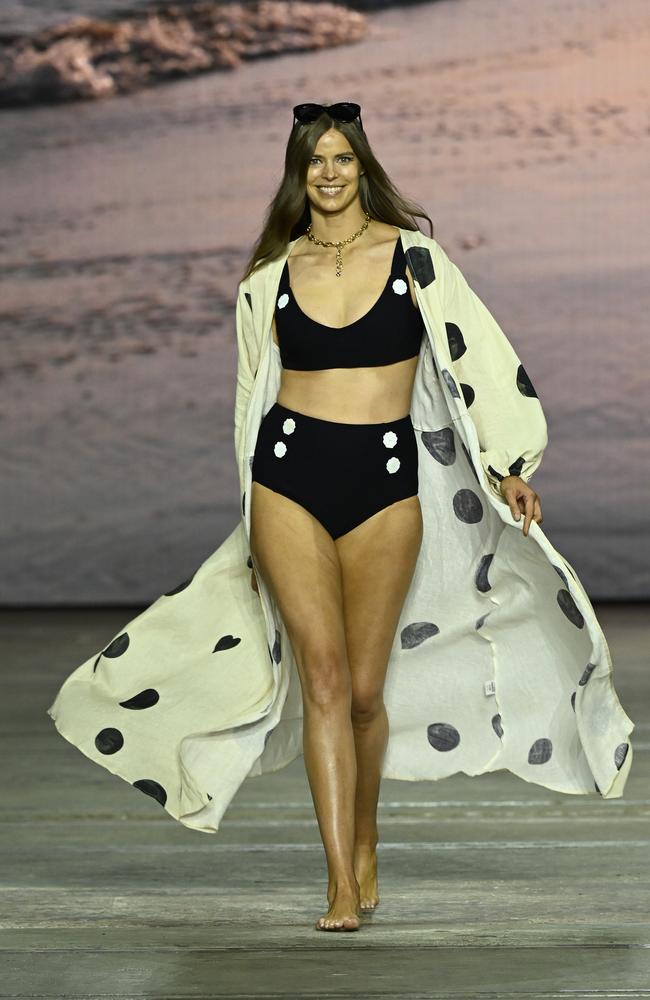
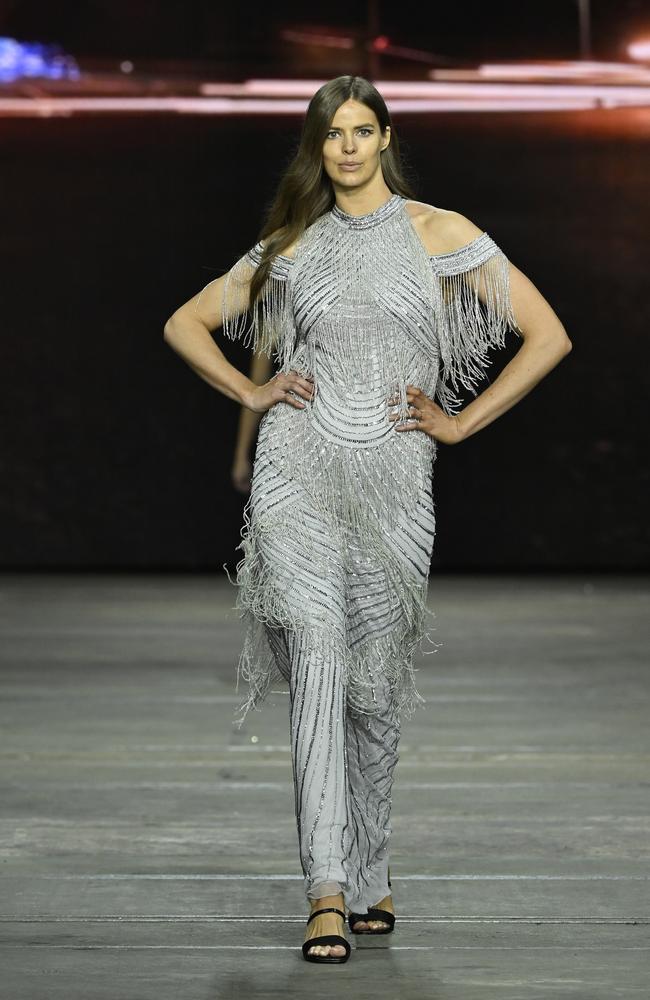
Later this year, the Victoria’s Secret Fashion Show will return with a full-scale runway for the first time since 2018. What do you think about that? They’re going to use curves, they’re going to use diversity – they will be torn apart if they don’t. I held my body to really high standards against that show at 15. I compared my body to [the Victoria’s Secret Angels] Gisele Bündchen and Adriana Lima; they were the pinnacle of what you needed to hold your body to. You go into [the VS] store now in New York and there are so many different body types. Because who are they selling to, who is your customer? I had such success with Robyn Lawley Swimwear because I was selling to everyone. You want to see your body represented. The [2018] show was the worst they’ve had because it was like a 15-year-old girl’s body type. I know some of the models, and I know the lengths that they went to for that show. They’re literally starving – and they’re already so skinny.
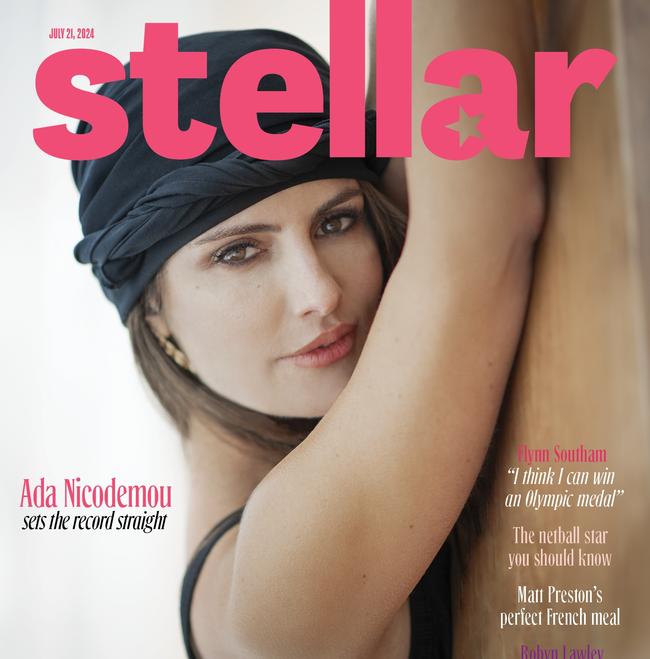
The full episode of Something To Talk About featuring Robyn Lawley is available below:
An Australian fashion brand came under fire recently for removing its size 20 offering, with its new line only running to size 18. That caused quite a stir. What’s your take? That’s where social media does help. You have the ability to have a voice, which you didn’t have before. You can say, “Hang on, you just got rid of a size that you’ve stocked for 10 years. Why are you doing this?”
You’re back in Australia to shoot the latest campaign for Inika Organic, a natural skin care and make-up brand. You’re at a point in your career where you now have a lot more agency on set. How does that feel, compared to when you started as a model? You’re so naive at 15. I always wanted to do a make-up shoot and I thought that would never happen for a curvy model. I was doing plus-size campaigns and that was it – I thought that would be my career, and I was OK with that; I had a different mindset back then. When I went into agencies, they took one look at me and were like, “Get out the measuring tape.” It was my manager who brought out the confidence in me [and my ability to get other campaigns]. I started to believe in the power of my body size.
There was a time when models faced an expiration date, but at 35, your career is growing.
We used to joke with the models in New York that we’d be retired by 30. When you’re on a shoot sometimes and you see the young girls, you’re like, “Oh my God, why am I here? I feel so much older!” Now I feel inspired by that. I go in there as “Robyn Lawley, the model.”
For more from Stellar, click here.See the full shoot with Robyn Lawley inside Stellar, out on Sunday.


